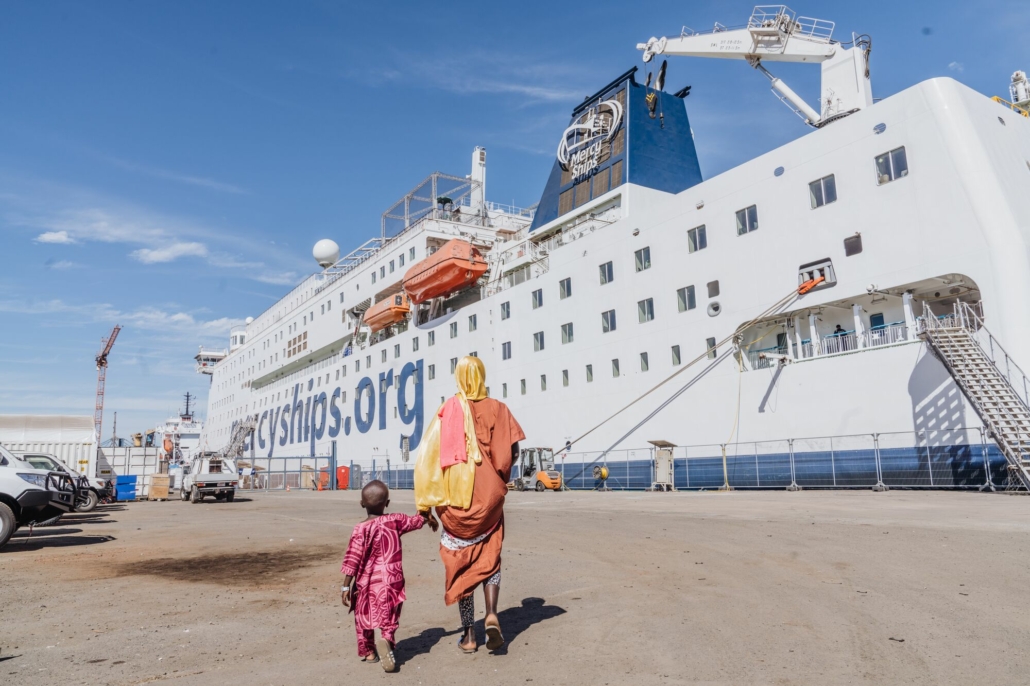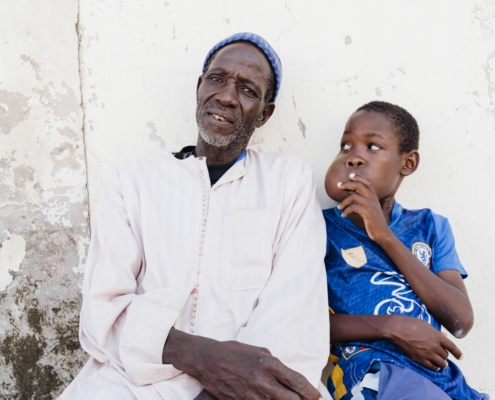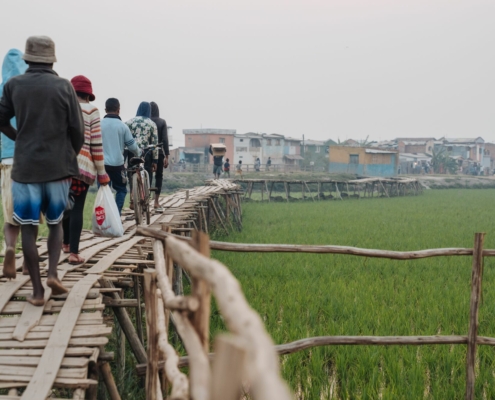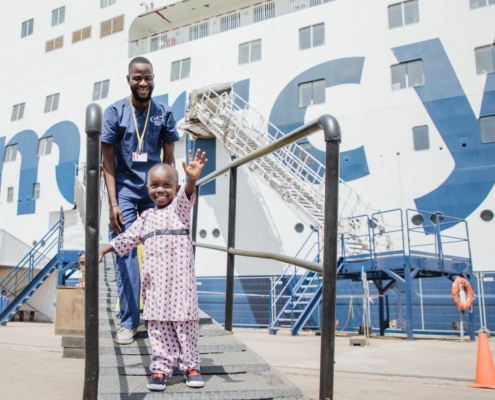2024: Mercy Ships doubles down efforts to bring surgical care and training to sub-Saharan Africa as studies pinpoint critical gaps in surgical, obstetric, and anesthetic care
More volunteers than ever are needed to devote their time to international charity Mercy Ships as it prepares to start 2024 with two hospital ships in service as the momentum to deliver improved surgical care across Africa intensifies.
The charity’s newest hospital ship, the Global Mercy™, continues to provide surgeries in Sierra Leone, where it has been since August 2023, while the Africa Mercy® will start service in Madagascar.
During 2023, Mercy Ships provided 3,295 surgeries, 1,437 of those took place on board the Global Mercy during field services in two ports – Freetown and Dakar. The ship served patients from three countries – Senegal, The Gambia, and Sierra Leone. This work was only possible thanks to 1,318 skilled volunteers from 67 countries, including more than 660 Senegalese, Gambian, and Sierra Leonean national crewmembers.
Mercy Ships was actively working in eight countries in 2023, including training 56 dentists and 1,297 healthcare professionals.
In December, gratitude for Mercy Ships’ work was publicly shared at the 3rd Congress of the joint Senegalese Society of Pediatric Surgery and the 9th Congress of the African Society of Pediatric Surgery in Dakar. Secretary General of the Ministry of Health and Social Action Professor Habib Ndiaye acknowledged the lack of pediatric surgeons in the country and thanked Mercy Ships for its considerable contribution in helping meet the very high demand for child orthopedic surgeries and surgeries on childhood deformities.
The new year marks two hospital ships being in service bringing even greater impact. But staffing those ships requires double the volunteers in order to target urgent surgical needs while also training in-country professionals to fill the significant surgical gaps highlighted by two recent studies.
It is estimated that five billion people around the world lack access to safe surgical care – and that approximately 1.7 billion of those are children and adolescents. A recent study in the Journal of Pediatric Surgery points out this burden is significant in sub-Saharan Africa, where nearly half the population is under 18 and yet children’s surgery is largely neglected by global health policies.

Accessing the National Surgical, anesthesia and obstetric plans (NSOAPS) for eight African nations, the study found that children’s care in not widely recognized as a public health priority even where a commitment to improving surgical care in general exists. It calls on greater prioritization of children’s surgery in surgical policy development to ensure robust and equitable surgical systems are developed.
This study and others show the need to accelerate access to surgery in sub-Saharan Africa. In 2022 an International Symposium was held where key national and international representatives as well as the African Union designed a roadmap to accelerate access to surgical care and surgical education for everyone in Africa by 2030. This resulted in the Dakar Declaration, which was endorsed by African Heads of State on board international health charity Mercy Ship’s newest hospital ship, the Global Mercy, as it docked in Dakar on May 20, 2022.
As the new year begins, Mercy Ships International Chief Medical Officer, Mark Shrime issued a rallying cry that the progress made needs continued and urgent action.
He said: “The Dakar Declaration calls upon all African nations, key partners, and stakeholders to commit to scaling up surgical services, infrastructure, and personnel available for patients who need them. Mercy Ships stands solidly behind this call, recognizing that one person dies of a surgically treatable disease every two seconds.”
Vital roles for the ships for 2024 include more nurses, an ophthalmic surgeon, radiology team members, IT professionals, cooks, teachers, plumbers, electricians. Roles also exist within the education, training and advocacy department who work to increase the number of surgical providers in country and co-create sustainable education programs with host countries whilst advocating for improved access to surgery on an international level. Find your place on board for 2024 here.







